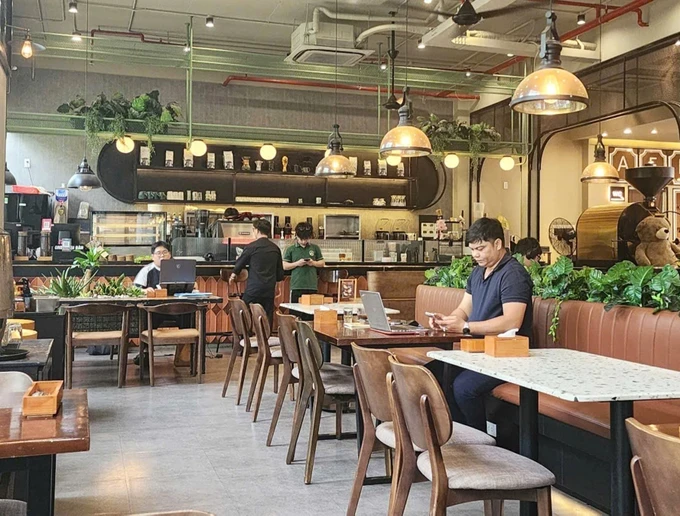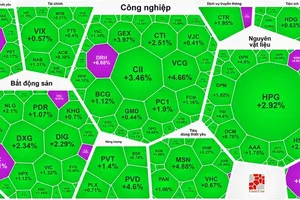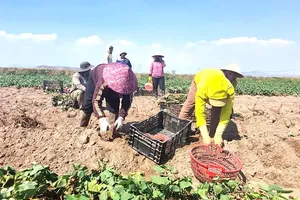
In 2014, founder Nguyen Hai Ninh inaugurated The Coffee House, predicated on a philosophy emphasizing meticulous detail, experiential spaces with comprehensive amenities, and competitive pricing, alongside superior service quality. The Coffee House distinguished itself through attentive store design, adhering to stringent dimensional standards for all fixtures. This approach facilitated rapid expansion, with the chain surpassing 100 outlets within four years, a milestone that took Starbucks a decade to achieve in Vietnam.
Industry observers were taken aback by Nguyen Hai Ninh’s announcement in February 2021, via his personal social media, of his departure from the enterprise he had nurtured for over six years. At the time, The Coffee House occupied a leading position in the Vietnamese coffee chain market, operating approximately 180 outlets nationwide.
Subsequently, the brand experienced a period of decline, failing to maintain its market share amidst the emergence of numerous competitors in the fiercely contested F&B landscape. By 2024, The Coffee House had shuttered over 30 outlets across major Vietnamese cities like Hanoi, HCMC, Hai Phong City, Da Nang City, and Can Tho City, reducing its national footprint to 93 stores.
In late 2024, Monkey in Black, a coffee chain known for its unconventional branding and associated with startup expert Tran Thanh Tung (Tung BT), announced the closure of its final branch in HCMC, which had been operational for over a decade. Monkey in Black, which had previously operated four locations in the city, attributed its closure to declining market relevance and diminished profitability. Tung BT commented that this sector is exceptionally challenging, with comparatively slim profit margins.
Shortly prior, in May 2024, the 18 Degrees Celsius milk tea brand ceased operations after 19 years, eliciting widespread nostalgic reactions from consumers.
Earlier, the Mon Hue restaurant chain, after nearly 12 years of operation, closed all its branches, citing employee wage debts and overdue supplier payments. Mon Hue, established in 2007, had expanded to approximately 77 locations across Vietnam. It had operated within the Huy Vietnam Food Processing Co. Ltd. culinary ecosystem, which also encompasses brands such as Pho Ong Hung, Great Banh mi & cafa, Com Tho Chay, Pho 99, Iki sushi, and Shilla Korean BBQ Restaurant. Huy Vietnam was co-founded by Huy Nhat and Tran Thi Thanh Tam in 2006.
The phenomenon of domestic and international food and beverage (F&B) brands entering the Vietnamese market with aggressive promotional campaigns, only to subsequently withdraw due to financial losses, is not uncommon. This trend underscores the imperative for established F&B brands to adapt to the prevailing competitive pressures.
To mitigate the risk of market obsolescence, businesses in this field must undergo strategic revitalization. CEO Nguyen Lam Vien of Vinamit JSC., a long-standing domestic F&B enterprise specializing in dried fruit snacks, expressed concern regarding the challenges faced by established brands amid the proliferation of new distribution channels.
The shift from traditional retail to online platforms has precipitated significant sales declines since 2023. Consequently, established brands must recalibrate their strategies to align with evolving consumer lifestyles and the burgeoning e-commerce landscape.
CEO Kao Sieu Luc of ABC Bakery emphasized the necessity of continuous innovation, particularly in research and development, to maintain competitiveness and cultivate novel customer experiences.
Director Do Duy Thanh of F&B Director Co. Ltd. underscored that F&B expansion necessitates a robust foundation in operations, finance, and human resources, transcending mere outlet proliferation.
F&B enterprises must conduct rigorous market analyses, extending beyond superficial data points, to identify unmet consumer needs, competitive landscapes, and unique value propositions. The market is projected to experience a resurgence in 2025, driven by increased demand for experiential dining and tourism.
However, businesses will confront escalating operational costs and intensified competition. Strategies such as pop-up stores (a short-term retail venture designed to create a temporary, often exciting, shopping experience at a certain location), franchising, and enhanced customer experience are recommended as alternatives to rapid expansion.
2024 F&B revenue approaching VND700 trillion (US$27.3 billion)
In March 2025, iPOS released a market analysis of the Vietnamese F&B sector. By the end of 2024, the number of F&B outlets in Vietnam was estimated at 323,010, representing a 1.8-percent year-over-year increase. Despite economic headwinds, the sector’s 2024 revenue reached approximately VND688.8 trillion ($26.9 billion), a 16.6-percent rise from 2023.
However, a survey of 4,005 F&B businesses revealed that only 25.5 percent reported stable revenue compared to 2023, with 14.7-percent reporting growth. Consumer research on 4,500 diners indicated a preference for quality products at affordable prices. Different from the trend during the two years of the Covid-19 pandemic, 52.3 percent of respondents favor beverages priced below VND35,000 ($1.36), reflecting a trend towards budget optimization.
























